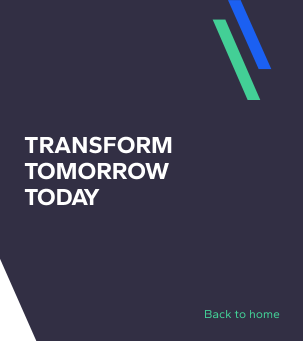Zigurat Global Institute of Technology
Blog / Leadership & Transformation
Benefits of Blockchain: A Business Sector Perspective
Categories

Nowadays, Blockchain has become so widely discussed that almost everyone has heard of it. Blockchain emerged as a result of cryptocurrency, mainly Bitcoin. Nevertheless, businesses and organizations have begun integrating it in their strategies and processes and experienced many benefits of Blockchain.
Other than dispersed money exchanges without any mediators, there are many different uses that can be applied. Organizations of various businesses can profit from Blockchain, as it creates a safe environment for the storage of data and information and also verifies and secures authenticity.
Blockchain, according to the Miriam Webster dictionary, is essentially a digital database that contains information (such as records of financial transactions) that can be used and shared throughout a network. It can record transactions between two parties efficiently and in a verifiable way. All of these transactions are hashed and then saved in a separate block. These blocks which are what forms the chain, are inalterable and thus, cannot be tampered with or erased. Since Blockchain is a decentralized network it also cannot be managed by one actor only. Since these transactions are executed by two parties, it is impossible for an outsider or third part to complete them.
This, in essence, is why Blockchain is known as a secure data record. It includes communication and data between the involved parties, while also permitting its access by other participants so they may check and monitor the execution of the transactions.
In those Blockchains that contain permissions, access is not easily obtained as it is heavily regulated. This is what makes Blockchain very different from traditional records that aim to achieve greater transparency.
Worth mentioning are the different aspects of Blockchain. Some of them are, for example, cryptography, consensus mechanism and mining. Without them, the network would be incomprehensible or become drastically different.
While many already know of Blockchain in cryptographic money exchanges and its ability to eliminate intermediaries, some other forms of applying Blockchain is still unknown. To begin with, observe the picture below, which demonstrates various industries that can apply Blockchain technology for different purposes.The Health Sector can benefit from Blockchain technology by using it as a viable and fixed record of information and data exchange system. Medical organizations can construct a protected electronic records framework for storing and conveying essential data while providing clients dependability and trustworthiness. The outcome is enhanced record administration and also minimization of printed material.
In this sector, drug theft and counterfeits are a big issue. With Blockchain, it is possible to store data and activities (such as client logins) in a way that prevents these activities.
Likewise, Blockchain facilitates the protection of trademarks and digital rights. Content creators, musicians and others can profit from this new technology to secure their rights and avoid copyright infractions.
The insurance sector can also benefit greatly from the application of Blockchain technologies. For example, travel insurance can avoid many of its present challenges because, with Blockchain, travel agencies can help avoid delays and cancellations suffered in their customer’s flights. Utilizing freely accessible information from suppliers, installments may be conducted naturally whenever the client makes a demand.
Now more than ever, security is the main issue of concern for organizations, governments, and regions all around the world. In the security field, Blockchain can guarantee the minimization of human mistakes, secure transactions and enhanced communication, etc.
New Ethereum Blockchain based platforms seek to create an open and global market for crowdfunding. Through the incorporation of P2P smart contract based governance, these Blockchain based platforms can overcome some of the challenges associated with cross-national jurisdiction issues that regularly arise.
Platforms that integrate Blockchain can provide smart contract templates that make launching a crowdfunding campaign safer and also bring innovate business models to a wide range of businesses and industries. Applying smart contracts helps remove intermediaries and makes the transfer of money and data more secure.
Luxury retail, electronics, pharmaceutical companies and more rely heavily on the authenticity of different products and the protection against counterfeits. Blockchain can be extremely beneficial in this aspect. By applying specific labels or tags on goods while also recording them in the distributed ledger, retailers can ensure the authenticity of their products and also enable consumers to verify this at any time.
Clients, thus, are enlisted as official proprietors with all activities being recorded in the database. The execution of such a valuable plan of action will permit retail organizations to assemble client trust, increment customer dedication, and avoid fraud and counterfeits.
Blockchain acts as a source of trust in which system participants are safe when exchanging information. With Blockchain we can leave an immutable record of all the changes made to each Building Information Modeling (BIM) object when designing and constructing a building or large infrastructure project.
Another group of interesting Blockchain applications in the construction world comes from the use of Smart Contracts. If this information, in addition and thanks to Blockchain, is distributed among all the parties in a way that guarantees the principle of neutrality, it is possible to create an authentic ecosystem of certification and execution of business rules, and even contracts, linked to information shared through the BIM model.



